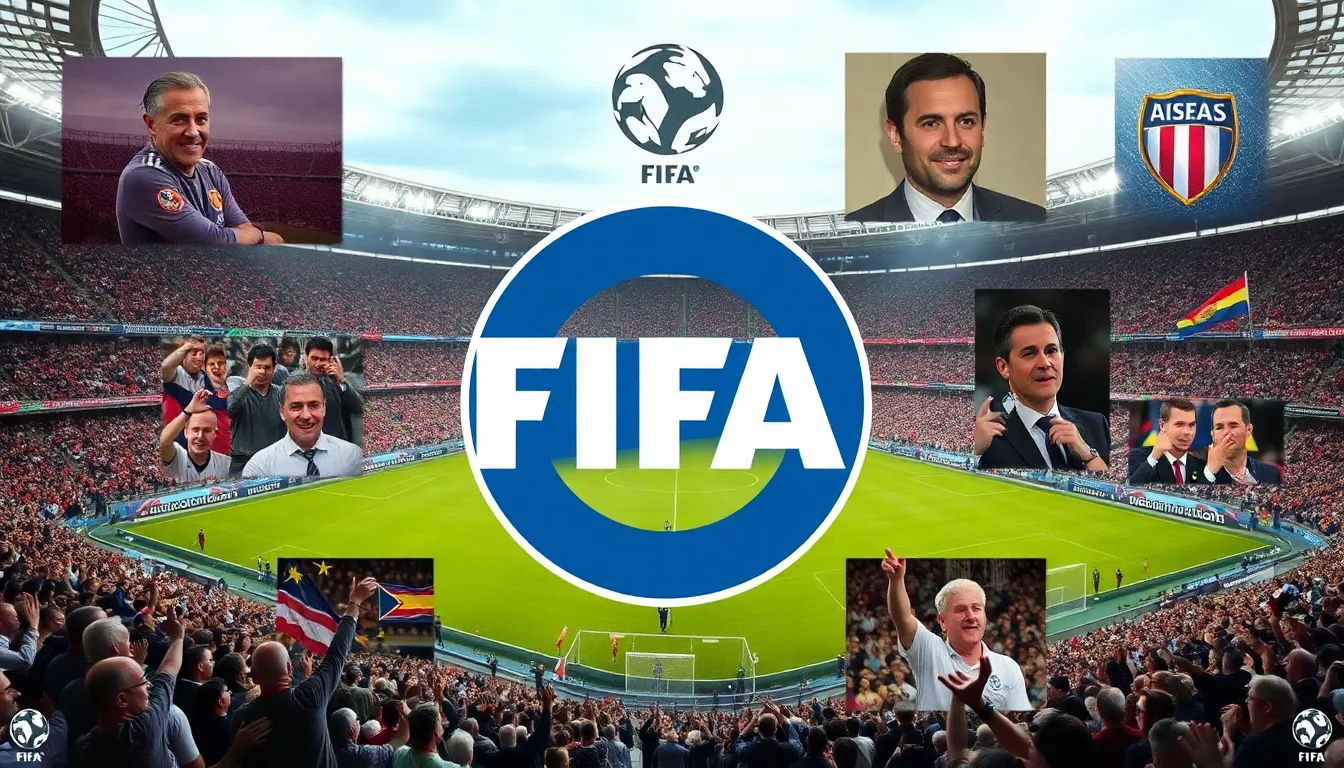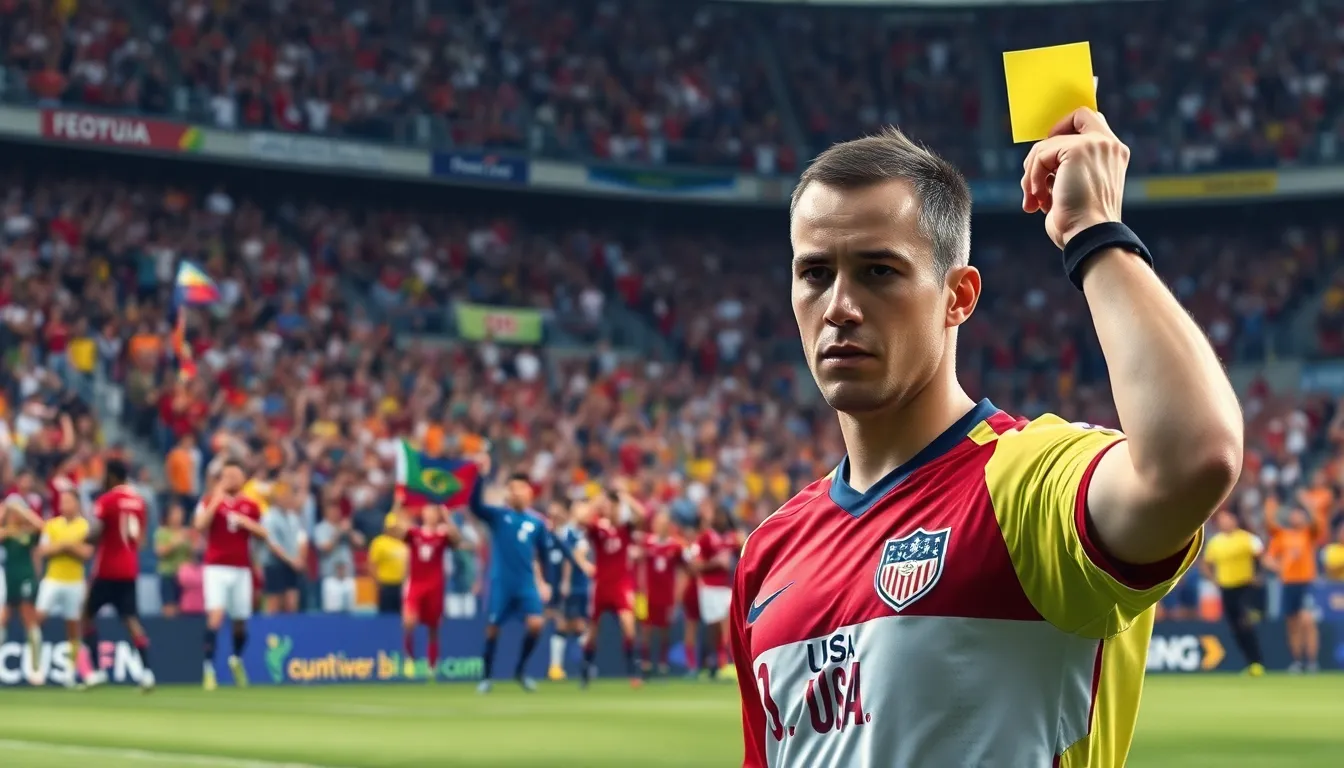When it comes to FIFA, the world’s most beloved and controversial sport organization, drama is never in short supply. From bribery scandals to questionable officiating, FIFA’s history reads like a soap opera, complete with plot twists that would leave even the most seasoned writers shaking their heads. Fans love the game, but they can’t help but cringe at the shenanigans that unfold behind the scenes.
Table of Contents
ToggleOverview of FIFA Controversies
FIFA’s history is marked by significant controversies that have shaped its image. Scandals involving bribery have surfaced multiple times, revealing unethical practices among officials. Noteworthy incidents include the 2015 corruption scandal, where numerous executives faced indictments for racketeering and money laundering.
Corruption allegations have extended to World Cup bidding processes. For instance, the selection of Qatar as the 2022 host prompted widespread scrutiny and claims of bribery. Officials faced accusations regarding payments to secure votes, raising questions about transparency.
Officiating has also been a focal point of controversy. Decisions made in high-stakes matches often drew ire from fans and pundits alike. In the 2010 World Cup, for example, a notorious goal-officiating error denied England a legitimate goal against Germany, igniting debates over technology’s role in the game.
Moreover, the treatment of workers in Qatar during the 2022 preparations sparked global outrage. Reports indicated poor working conditions and numerous fatalities, drawing condemnation from human rights organizations. Investigating these conditions revealed a stark contrast between FIFA’s ideals and the realities of its operations.
Censorship and media restrictions further complicate FIFA’s public relations. Journalists covering events encounter obstacles, limiting critical coverage of issues within the organization. Increased scrutiny shines a light on the need for reform, highlighting the disparity between FIFA’s objectives and its actions.
Each controversy contributes to an ongoing narrative, compelling fans to navigate the complexities of their beloved sport. As these issues unfold, they continue to shape perceptions of FIFA globally.
Major Scandals in FIFA History

FIFA’s reputation is marred by several major scandals, with allegations of impropriety and corruption at the forefront.
The 2006 World Cup Bribery Allegations
Bribery allegations emerged during the 2006 World Cup, particularly surrounding the awarding of broadcast rights. Investigations revealed that various officials accepted illicit payments in exchange for favorable contracts. This situation raised serious questions about transparency in FIFA’s decision-making processes. Multiple media reports indicated a lack of accountability, leading to public outcry. Scrutiny intensified as fans and nations demanded the organization address these unethical practices.
The 2015 Corruption Scandal
In 2015, a massive corruption scandal erupted, resulting in the indictment of numerous FIFA executives. Authorities charged individuals with racketeering, money laundering, and wire fraud. Investigations uncovered widespread bribery linked to World Cup bidding processes, particularly regarding the 2022 Qatar selection. The fallout prompted significant reforms within FIFA, with calls for improved governance and oversight. Media coverage spotlighted how deeply rooted corruption undermined trust in the organization.
Impact of Controversies on FIFA’s Reputation
FIFA’s reputation suffers significantly from its numerous controversies. Negative public perception often stems from scandals surrounding corruption allegations and poor governance practices. Media coverage amplifies these issues, highlighting instances of bribery and questionable decisions, which create distrust among fans. Such narratives dominate headlines, shaping how audiences view FIFA over time. Limited transparency and censorship further complicate the organization’s ability to manage its image.
Public Perception and Media Coverage
Public perception of FIFA shifted due to ongoing controversies. Fans remain divided, expressing disillusionment over the organization’s integrity and decision-making. Coverage in major media outlets frequently focuses on corruption scandals, emphasizing the need for reform. Reports about the treatment of workers in Qatar and match officiating errors contribute to a negative narrative. Trust erodes when scandals overshadow the sporting aspect of FIFA, leading many to question its leadership.
Sponsor Reactions and Impact
Sponsorship deals with FIFA often reflect the organization’s tarnished image. Leading brands face scrutiny when associated with FIFA, prompting them to reevaluate partnerships. Some sponsors express concern regarding the reputational risk tied to ongoing controversies. Corporate responsibility now influences sponsorship decisions, as brands aim to maintain positive public images. High-profile sponsors have even distanced themselves following scandals, impacting FIFA’s financial stability and future negotiations.
The Role of Governance in FIFA Controversies
FIFA’s governance structure significantly influences its controversies. Leadership changes often affect policies and public perception.
Changes in Leadership and Policy
Leadership transitions within FIFA frequently accompany shifts in policy. New presidents bring fresh perspectives, which sometimes lead to immediate changes in governance practices. These changes aim to address longstanding issues related to corruption and accountability. For instance, following the 2015 corruption scandal, FIFA implemented new policies intended to enhance oversight and ethical standards. Each transition generates mixed reactions from stakeholders, impacting FIFA’s reputation. Reforms often emerge in response to public outcry, indicating a need for improvement in governance frameworks.
Efforts Towards Transparency and Reform
FIFA has initiated several transparency measures to restore public trust. Anti-corruption measures include the establishment of independent committees to oversee disciplinary actions. Implementation of detailed financial reports also aims to clarify operations and spending. Additionally, FIFA’s commitment to media access helps foster a more open dialogue about governance issues. Reform efforts focus on addressing worker treatment concerns raised during the 2022 Qatar preparations. By promoting transparency, FIFA attempts to mitigate damage caused by negative public perception and seeks to enhance its credibility within the sports community.
FIFA’s journey through controversies reveals a complex interplay of passion and disillusionment among fans. While the organization strives to implement reforms and enhance transparency, the shadow of past scandals lingers. The ongoing scrutiny of governance practices and worker treatment highlights the urgent need for accountability.
As FIFA navigates these challenges, the relationship with sponsors and fans hangs in the balance. The world watches closely to see if the organization can truly transform its image and restore trust. The future of FIFA hinges on its ability to address these critical issues head-on, ensuring that the beautiful game remains untainted by the controversies that have plagued it for so long.



